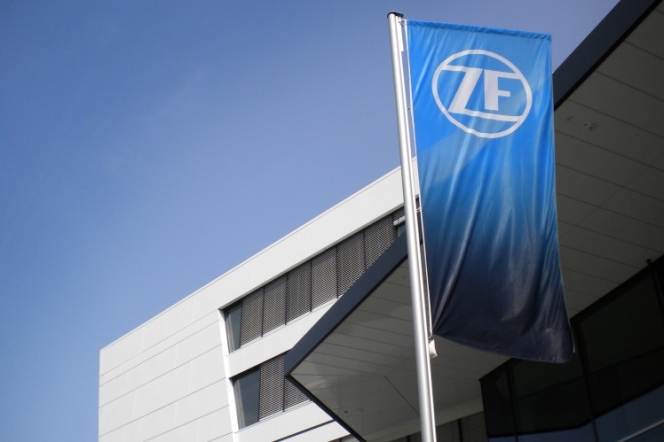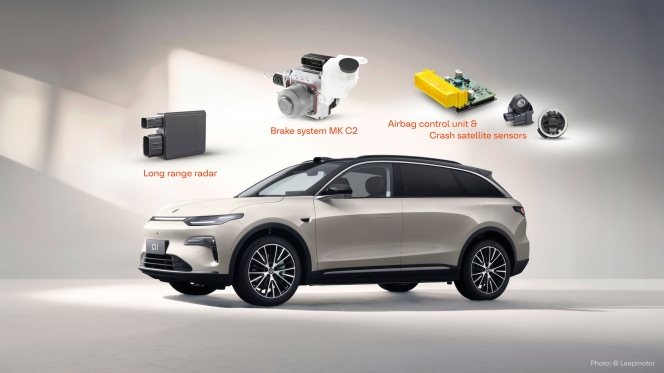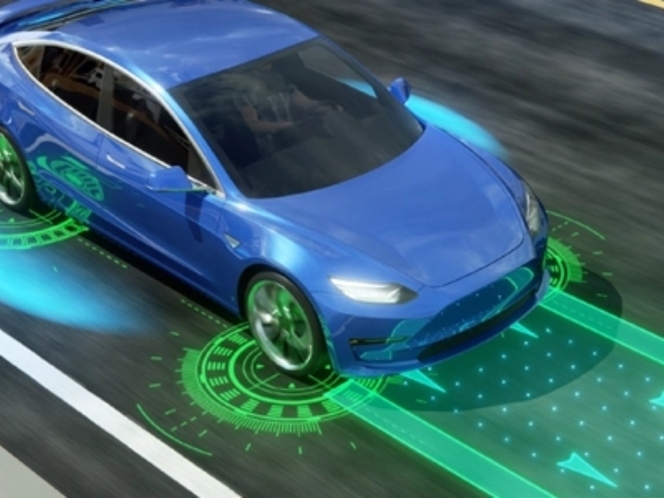Sundram Fasteners Unit Gets Recognition From General Motors
- By MT Bureau
- March 31, 2022

Sundram Fasteners Limited has announced that its Powertrain Components Division has been recognised as Supplier of the Year by General Motors during its 30th Annual Supplier of the Year awards.
The company said this is the ninth time the Chennai-based auto component major has received the coveted recognition.
The American automaker has honoured 134 of its suppliers from 16 countries with the Supplier of the Year distinction in 2021. The awards are an acknowledgement of global suppliers that have distinguished themselves by exceeding GM’s requirements, resulting in providing GM customers with innovative technologies and high quality, the company said in a release.
Arathi Krishna, Managing Director, Sundram Fasteners Limited, said, “We are pleased to receive this prestigious award from General Motors, a global leader in the automobile sector. This recognition is a validation of our commitment to quality, safety, innovation, sustainability and excellence. The fact that we have received this award for the ninth time demonstrates our ability to exceed customer expectations consistently.”
Krishna added, “The GM award truly epitomises our journey over the years, specifically the efforts in new product development, R&D and technology. This award encourages us to develop technology-backed new products every year. I would like to congratulate my entire team at Sundram Fasteners and all our suppliers who have helped us to get this recognition consistently year on year.”
Shilpan Amin, Vice President, Global Purchasing and Supply Chain, General Motors, said, “This year’s Supplier of the year event was special not only because it’s the 30th Anniversary of the programme, but it also provided us with the opportunity to recognise our suppliers for persevering through one of the most challenging years the industry has ever faced. The top suppliers showed resilience and reinforced their commitment to pursuing sustainability and innovation. Through our strong relationships and collaboration, GM and our suppliers are posed to build a brighter future for generations to come.”
Winners of awards were chosen by a global team of GM purchasing, engineering, quality, manufacturing and logistics executives. Parameters for evaluation were Product Purchasing, Global Purchasing and Manufacturing Services, Customer Care and Aftersales and Logistics, the release said.
Sundram Fasteners supplies key products to GM, including transmission shafts, radiator caps and more, which are seen across prestigious GM brands like Cadillac, GMC and Chevrolet. The company has been a GM vendor for over 25 years and has won the Supplier of the Year award five times in a row from 1996 to 2000, and in 2009, 2019, 2020 and now, in 2021.
Meanwhile, the company said the Ministry of Heavy Industries (MHA) has approved its application under Component Champion Incentive Scheme of the PLI Scheme.
The PLI Scheme aims in building a robust supply chain in areas of Advanced Automotive Technology (AAT) components. The eligibility criteria require minimum investment of INR 250 crores over five years with at least INR 100 crores in the initial two years. The company, out of capital expenditure amounting to INR 2,000 crores planned over a period of next five years, has a projected investment of over INR 350 Crores for manufacturing Advanced Automotive Technology (AAT) components like powertrain sub-assemblies for Electric Vehicles (EV) and select Internal Combustion Engine (ICE) vehicles. The company has secured firm orders from Global OEMs for supply of these components under their EV programmes, the release added.
Krishna said, “The PLI scheme will benefit the sector in multiple ways by increasing localisation and make India an export hub in the global auto supply chain. We are setting aside around INR 350 crores for the
manufacture of advanced automotive technology components for the next five years.” (MT)
ZF, BMW Sign Long-Term Supply Agreement For Drive Technologies
- By MT Bureau
- February 03, 2026

German tier 1 supplier ZF Friedrichshafen and the BMW Group have entered into a long-term supply agreement for passenger car drive systems. The contract, valued at several billion euros, extends until the late 2030s.
The agreement focuses on the supply and continued development of the 8-speed automatic transmission (8HP). The partners aim to support low-emission mobility and maintain technological flexibility during the industry transition.
A central component of the partnership is the technical evolution of the 8HP transmission kit to meet the requirements of electrified drives. The development will focus on increasing efficiency and performance for future vehicle concepts.
Mathias Miedreich, CEO of ZF, said, “Together with BMW, we are sending a strong signal for innovation, efficiency, and sustainability in an industry undergoing dynamic change. This agreement highlights the strategic importance of our 8-speed automatic transmission as a key technology for the transformation of drive systems.”
The duration of the contract provides both ZF and BMW with planning stability in a changing market. ZF aims to strengthen its position as a system supplier while reducing risks through close collaboration with the carmaker.
Sebastian Schmitt, Head of ZF's Electrified Drive Technologies division, explained, “The new agreement with BMW shows how important long-term planning horizons are for technological advancements. It creates clarity and stability for both companies and enables us to align the next generation of the 8HP specifically toward efficiency, performance, and long-term viability.”
Leapmotor Selects Aumovio For Safety Technologies
- By MT Bureau
- February 02, 2026

Aumovio has entered a supply agreement with Chinese electric vehicle manufacturer Leapmotor to provide safety components for the carmaker’s B and C platforms.
Several models within Leapmotor’s B platform now utilise Aumovio's long-range radar, electric parking brake and airbag control unit (ACU). Models on the C platform, including the C10, C11 and C16 SUVs, feature the latest generation of the MK C2 one-box brake system, alongside the long-range radar and ACU.
The project was completed with a development cycle approximately one-third shorter than traditional automotive timelines. Aumovio attributed its speed to ‘local-for-local’ strategy in China, where the company operates 20 sites and employs around 10,000 staff. In 2024, Aumovio held a 14 percent share of market revenue in the region.
The supplied technologies include:
- MK C2 Brake System: A unit combining the master cylinder, electronic brake system, and brake booster. It is produced locally in Shanghai.
- Long-Range Radar: A sensor with a detection range of up to 280 metres, used for driver assistance across both platforms.
- Airbag Control Unit (ACU): Integrated with crash satellite sensors, these components are manufactured in Changchun.
Boris Mergell, Head of the Safety and Motion business area at Aumovio, said, “Pairing ‘China speed’ with ‘German quality’ technologies helped us to support a rapid roll-out with our latest safety technologies. This underscores Aumovio’s course towards an adaptive powerhouse that works flexibly and closely with customers to innovate. It also shows that we continue to strengthen our customer relationships in the important market China.”
The partnership supports Leapmotor’s international presence. The B10 and B05 models, which feature Aumovio's ACU and radar technology, were showcased at the IAA 2025 in Munich as part of the manufacturer's European entry.
LTTS Secures Multi-Year Deal From Automotive OEM For Engineering And R&D
- By MT Bureau
- January 28, 2026

Bengaluru-headquartered ER&D company L&T Technology Services (LTTS) has announced a multi-year engagement within its mobility segment from an automotive manufacturer. The agreement involves software, connectivity and digital engineering services across vehicle technology domains. This win follows the company’s investments in R&D labs and mobility infrastructure designed for programs with global manufacturers.
The engagement covers mobility engineering capabilities, including embedded systems, digital platforms, verification and validation, cloud integration and cybersecurity. LTTS intends to use its engineering expertise and delivery frameworks to support the customer's technology roadmap.
At present, LTTS operates 22 design centres and 100 innovation labs globally.
The agreement strengthens the partnership between LTTS and the automotive manufacturer in the area of mobility engineering. The company provides design, development, and testing services across the mobility, sustainability, and tech segments.
Alind Saxena, Executive Director and President, Mobility and Tech at L&T Technology Services, said, “We are proud to deepen our partnership with the valued customer through this strategic engagement. LTTS brings together domain-led engineering, secure development practices and excellence in global delivery to accelerate the future of premium mobility. The win reflects the trust placed in our teams and our commitment to delivering world-class engineering at scale”.
Valeo And NATIX Network Partner To Develop Open-Source World Foundation Model
- By MT Bureau
- January 25, 2026

French technology company Valeo and NATIX Network have announced a partnership to develop a multi-camera World Foundation Model (WFM). The project combines Valeo’s research in artificial intelligence and generative modelling with NATIX’s decentralised physical infrastructure network (DePIN) to create an open-source platform for autonomous driving and robotics.
The initiative aims to move beyond perception-based models by creating a system capable of predicting future states and reasoning about physical interactions in a four-dimensional environment. The model will be trained using NATIX’s data network, which has collected 600,000 hours of video data across the US, Europe and Asia over seven months. This data provides the multi-camera inputs necessary for the spatial perception required by autonomous vehicles and robots.
The partnership builds upon Valeo’s existing open-source frameworks, VaViM (Video Autoregressive Model) and VaVAM (Video-Action Model). While these frameworks were previously trained primarily on front-camera datasets, the integration of NATIX’s multi-camera network expands the AI’s field of vision to 360 degrees.
Under the open-source framework, the partners will release models, datasets and training tools. This approach is intended to allow the research community to fine-tune models and benchmark physical AI across various driving conditions and geographic regions. The collaboration seeks to accelerate the deployment of end-to-end AI models by learning from real-world edge cases captured by vehicles in operation.
Marc Vrecko, Chief Executive Officer, Valeo’s Brain Division, said, “Since our creation in 2018, Valeo’s AI research center has been at the forefront of AI research in the automotive industry, especially in the fields of assisted and autonomous driving. Our goal has always been to advance mobility intelligence safely and responsibly. By combining Valeo’s generative world modeling research expertise with NATIX’s global multi-camera data, we are accelerating both the quality and the accessibility of next-generation end-to-end AI models, enabling the research community to build upon strong open models.”
Alireza Ghods, CEO and Co-Founder, NATIX, added, “WFMs are a once-in-a-generation opportunity — similar to the rise of LLMs in 2017–2020. The teams that build the first scalable world models will define the foundation of the next AI wave: Physical AIs. With our distributed multi-camera network, NATIX has a clear advantage of being able to move faster than large OEMs.”







Comments (0)
ADD COMMENT